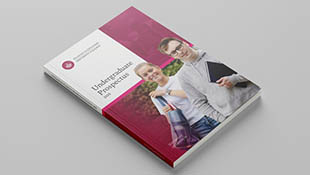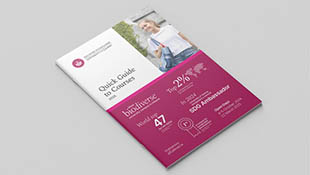-
Courses

Courses
Choosing a course is one of the most important decisions you'll ever make! View our courses and see what our students and lecturers have to say about the courses you are interested in at the links below.
-
University Life

University Life
Each year more than 4,000 choose University of Galway as their University of choice. Find out what life at University of Galway is all about here.
-
About University of Galway

About University of Galway
Since 1845, University of Galway has been sharing the highest quality teaching and research with Ireland and the world. Find out what makes our University so special – from our distinguished history to the latest news and campus developments.
-
Colleges & Schools

Colleges & Schools
University of Galway has earned international recognition as a research-led university with a commitment to top quality teaching across a range of key areas of expertise.
-
Research & Innovation

Research & Innovation
University of Galway’s vibrant research community take on some of the most pressing challenges of our times.
-
Business & Industry

Guiding Breakthrough Research at University of Galway
We explore and facilitate commercial opportunities for the research community at University of Galway, as well as facilitating industry partnership.
-
Alumni & Friends

Alumni & Friends
There are 128,000 University of Galway alumni worldwide. Stay connected to your alumni community! Join our social networks and update your details online.
-
Community Engagement

Community Engagement
At University of Galway, we believe that the best learning takes place when you apply what you learn in a real world context. That's why many of our courses include work placements or community projects.
Dr Ciaran Arthur
Postdoctoral researcher: Dr Ciaran Arthur
Research Ireland Pathway Programme (2025–2029)
Connect 4: Uncovering Knowledge Exchange within the Early Medieval Insular World through Linguistic Idiosyncrasies in Obscure Letters, Words, Phrases, and Texts
Connect 4 will establish a new corpus of linguistically opaque texts in manuscripts produced in Insular centres across early medieval Britain, Ireland, and Europe (ca. 600-1100) that have defied scholarly interpretation. Obscure texts that employ ancient and foreign languages, strange words, exotic alphabets, and cryptic signs are prevalent in early Insular manuscripts, particularly in charms, amulets, and remedial texts, ciphers, and riddles. Obscure writing was a phenomenon integral to early medieval intellectual, religious, and scientific culture. Connect 4 will compile, classify, and reinvestigate texts that are highly obscure in meaning through either scribal error or deliberate obfuscation. Its digital repository will provide a thematic, multidisciplinary tool to cross-compare, critically analyse, and attempt to solve meanings in these mysterious texts. Identification of linguistic idiosyncrasies and patterns within this corpus will expose sources, reveal cross-cultural, international exchanges of ideas within the Insular world, and advance original interpretations. A series of published case studies will launch this new, interdisciplinary field within Medieval Studies, leading to genuinely ground-breaking discoveries in a wide range of linguistically opaque texts that were written at a time contemporary with significant developments in intellectual approaches to language, religion, science, historiography, and cryptography in the early medieval Insular world.
Irish Research Council Postdoctoral Fellow (2020–2022)
Intentional Obscurity and 'Divine Speech’ in Early English Texts
A vast proportion of enigmatic texts from early medieval England (c. 800-1150) have been consistently dismissed as nonsensical because of their use of highly obscure language. Traditional scholarship maintains that such texts originally contained heathen formulas before Christian scribes substituted these with misunderstood sources, rendering them meaningless and ‘gibberish’. This project will apply an original alternative interpretative framework to case studies of these obscure texts to ‘decode’ them and demonstrate that they are far from meaningless when they are situated in the wider historical and intellectual contexts of classical and medieval understandings of obscurity, hermeneutics, secrecy, language manipulation, cosmology, and ‘divine speech’.
Many of these texts appear in manuscripts that also contain a wealth of material concerned with biblical interpretation (exegesis), the decoding of astronomical ‘data’ (computistics), and predictions of cosmological events (prognostications), and in some cases they are said to be written by angels. Furthermore, their often impenetrably obscure content bears striking similarities to methods of encryption that were well-known and developed by early medieval Continental and Insular scribes from the seventh century onwards. These obscure writings rather indicate that the Christian scribes who wrote obscure texts had also studied or read ancient philosophies of language that often engaged closely with issues of ‘divine speech’ and its cosmological significance throughout salvation history, which in turn inspired several systems of linguistic obfuscation. Interpreting highly obscure early medieval texts according to older and contemporary practices of discovering and concealing knowledge places them in an overtly Christian, intellectual context.
The project will produce several outputs including a book that analyses intertextual case studies of so-called ‘gibberish’ texts that have never been deciphered within this wider philosophical context to generate original interpretations of their obscure content, which can build the foundations of a larger international project on obscurity and hermeneutics throughout pre-Modern Europe.
Mentor: Dr Pádraic Moran
Research area: cross-cultural encounters, Digital Humanities



















